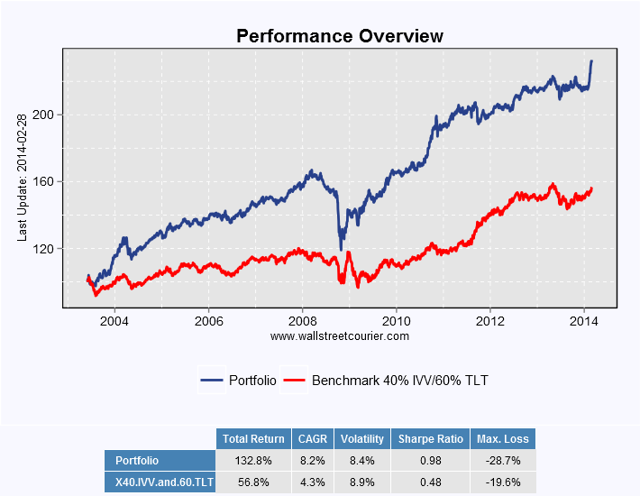Retirement Investing in Bond ETFs
Post on: 25 Июль, 2015 No Comment

Retirement investors are finding new available alternatives for investing in corporate bond ETFs.
Retirement investors keep a certain percentage of their portfolio invested in bonds. As one approaches retirement age, allocation toward fixed-income investments – with an emphasis on Treasury bonds – becomes increased, in accordance with conventional wisdom. Until recently, ETF investors have been limited in their choices of bond-based investments.
Once the Federal Reserve begins to “normalize” interest rates by gradually increasing the federal funds rate, other interest rates will follow – including the yields for United States Treasury bonds and notes. Longer-duration Treasuries or Treasury bond ETFs have been quite popular with retirement investors. These include the iShares 20+ Year Treasury Bond ETF (NYSEARCA:TLT).
Unfortunately, the increases to the federal funds rate will decrease the value of those longer-duration bonds more significantly than the value of shorter-duration Treasuries. As a result, retirement investors who focused on Treasury “bond” ETFs have been limited to such products as the iShares 1 – 3 Year Treasury Bond Fund (NYSERARCA:SHY) and the Schwab Short-Term U.S. Treasury ETF (NYSEARCA:SCHO).
In February of 2012, PIMCO introduced its PIMCO Total Return Active ETF (NYSEARCA:BOND), which gave retail investors the opportunity to include a corporate bond-based ETF in their portfolio. In May of 2014, Jeffrey Gundlach announced that he was working with State Street Corporation to form the SPDR DoubleLine Total Return Tactical ETF. Since that time, the regulatory paperwork has been filed with the SEC. Nevertheless, the new, DoubleLine ETF has not yet hit the market. In fact, it does not even have a ticker symbol at this point.
The Northern Trust has recently created its FlexShares unit, which is offering ETFs. The Northern Trust has been offering mutual funds for many years, although the ever-growing investor preference for ETFs has motivated the gang at 50 S. LaSalle to adjust to the new market. On November 12, the FlexShares Credit-Scored US Corporate Bond Index Fund (NASDAQ:SKOR) made its debut on the Nasdaq Exchange.
The SKOR ETF tracks the Northern Trust Credit-Scored US Corporate Bond Index, which measures the performance of a group of intermediate maturity, U.S.-dollar denominated bonds of companies with investment grade-like characteristics, and enhanced short-term and long-term solvency. To promote liquidity, securities must have an effective maturity of 2-10 years and at least $500 million in amount outstanding to be eligible for inclusion. Its top holdings include bonds from your old financial crisis buddies, including Goldman Sachs (NYSEARCA:GS) as well as such companies as IBM, Verizon and Coca-Cola.
The last word: Retirement investors who are searching for corporate bond-based ETFs are finally getting more choices, after having been limited to Pimco’s BOND ETF since 2012.














